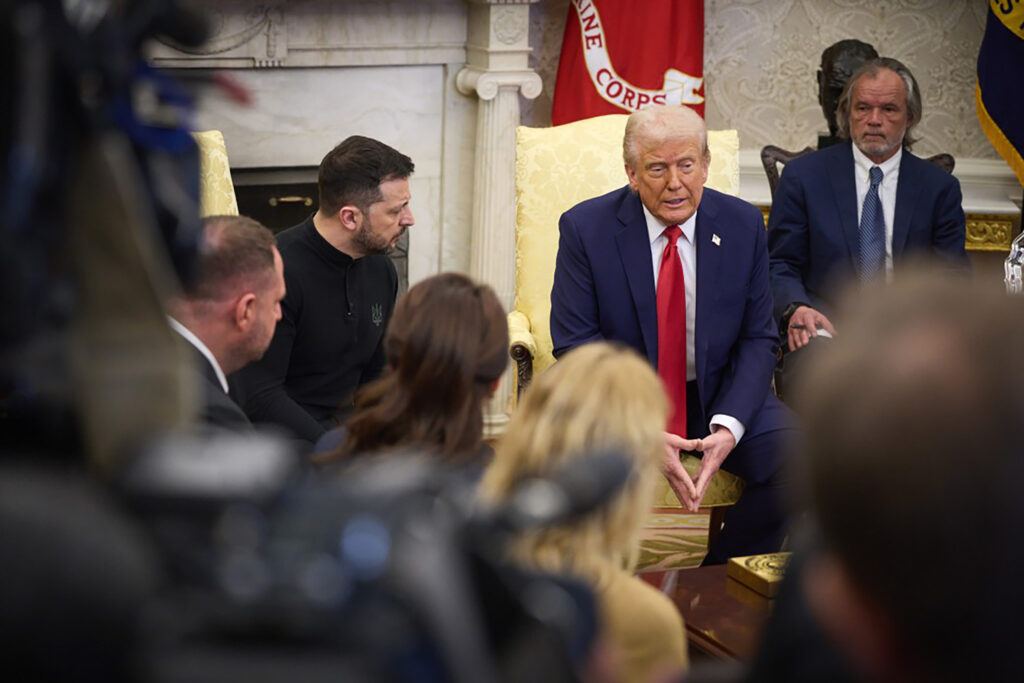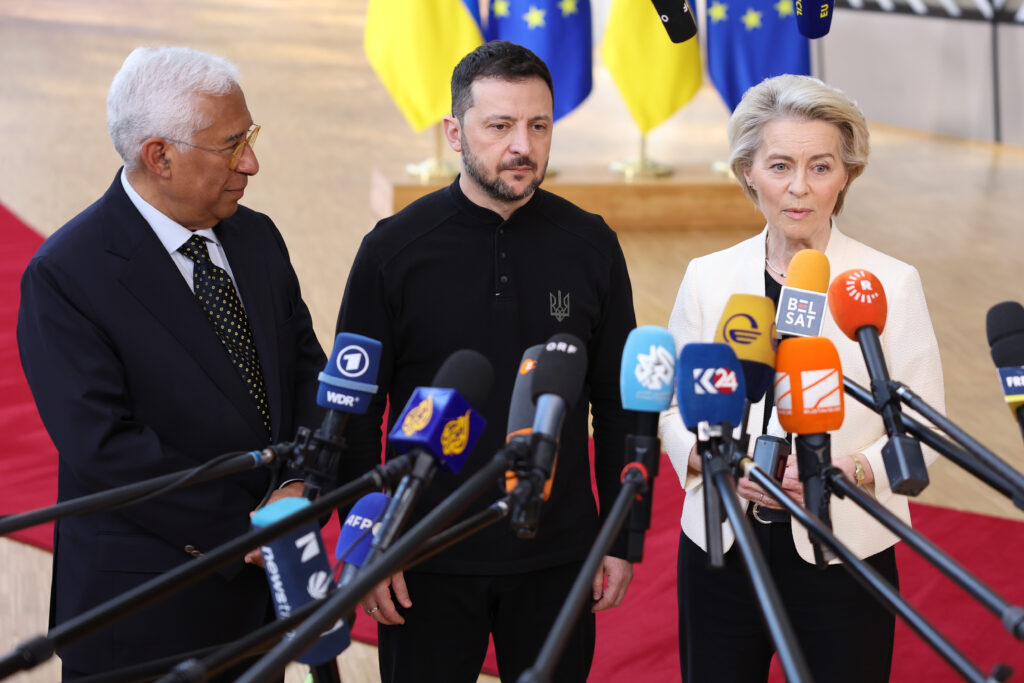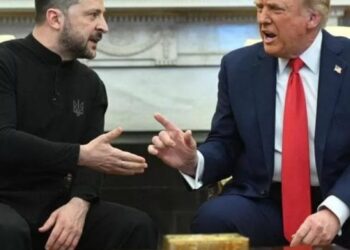Brussels – For months, there has been talk of a phantom Ukrainian “rare earths” agreement, which Donald Trump would like to conclude as reimbursement for Washington’s support for Kyiv (past and future) and which, he says, his counterpart Volodymyr Zelensky should welcome as the best security guarantee for his country. However, what is it all about? Who would benefit from getting their hands on the former Soviet republic’s subsurface resources?
On Thursday (April 17), Ukrainian Economy Minister Julija Svyrydenko announced the signing of a Memorandum of Understanding with US Treasury Secretary Scott Bessent that, at least on paper, should constitute a first “step toward a broader joint economic partnership agreement.“”It is important to reaffirm with our agreements the desire of the American people to invest together with the Ukrainian people in a free, sovereign, and secure Ukraine,” she said, stressing that the Kyiv Parliament and US Congress will have to approve the final text of the document.
We are happy to announce the signing, with our American partners, of a Memorandum of Intent, which paves the way for an Economic Partnership Agreement and the establishment of the Investment Fund for the Reconstruction of Ukraine. pic.twitter.com/AQsHPkWh5X
– Yulia Svyrydenko (@Svyrydenko_Y) April 17, 2025
The conditional remains a must after the ambush laid on Volodymyr Zelensky by Donald Trump and his deputy, JD Vance, in the Oval Office in late February. The White House occupant interprets the Ukrainian minerals deal as a repayment owed to his country by the former Soviet republic in return for the generous aid–financial and military–given over three years of war.
Kyiv and Washington have been working for months to find a balance on the terms of the understanding after the Ukrainian leadership rejected different versions deemed overly onerous (so much so that some observers even called them “colonial”). It is still unclear what precisely the memorandum includes, but it has long been known that among the key elements is establishing an ad hoc investment fund with “joint ownership” between the two countries.
Ukraine is expected to contribute 50 percent of revenues from the sale of domestic mineral resources, and that money should go to finance reconstruction projects in which, it is fair to imagine, US companies would have some sort of pre-emption. The US would also have privileged access to Ukrainian subsoil resources (including oil and natural gas), which, Trump argues, constitute a crucial element of the much-discussed security guarantees demanded by Kyiv to ensure the sustainability of any truce or peace with Moscow.

As several analysts say, Ukraine is not as rich in such resources, or at least not notably richer than other countries in other regions of the world. Moreover, these are not exploitable resources in the short to medium term: aside from the fact that the war is ongoing (and that many deposits are close to the front lines or even under Russian occupation), it takes an average of a dozen years to locate and extract the minerals in question.
In the former Soviet republic, there may be significant uranium deposits, but these account for only 2 percent of recoverable resources globally (compared with 28 percent in Australia, 13 percent in Kazakhstan, or 10 percent in Canada). Ukraine also has about 1 percent of the world’s titanium and graphite reserves. Still, no extensive studies have been conducted in recent times on the viability of potential extraction of, for example, lithium and other rare earths (the presence of which has been documented since the USSR).
Moreover, the only global power for which it would be convenient to exploit Ukrainian reserves is the European Union, both because of geographical proximity (which shortens supply chains) and because of the substantial shortage of such raw materials in the subsoil of the 27 member states, which is much more complex to make up for after the dismantling of colonial empires.
 From left: Antonio Costa, Volodymyr Zelensky and Ursula von der Leyen (photo: European Council)
From left: Antonio Costa, Volodymyr Zelensky and Ursula von der Leyen (photo: European Council)
After all, the EU has had a memorandum of understanding with Ukraine since 2021, in which critical materials play a primary role. It can also put the prospect of Kyiv’s membership in the twelve-star club on the table. However, the Commission has warned of possible violations of EU free competition rules if the agreement with Uncle Sam disproportionately favors US companies at the expense of European ones.
All the more so given Trump’s approach to global trade, Brussels would be far more comfortable getting its hands on Kyiv’s treasure trove than Washington, which already has a not inconsiderable amount of mineral (and hydrocarbon) resources at home. If anything, experts note that what rare earths provide the United States is an acceptable justification – especially from the perspective of systemic competition with China – to continue a military engagement in the Old Continent. This commitment heavily clashes with the isolationist foreign policy flaunted by the tycoon during his America First Agenda campaign.
English version by the Translation Service of Withub


![Industria difesa europea, i leader chiedono di velocizzare [foto: archivio]](https://www.eunews.it/wp-content/uploads/2022/02/Indutria-difesa-UE.jpg)





